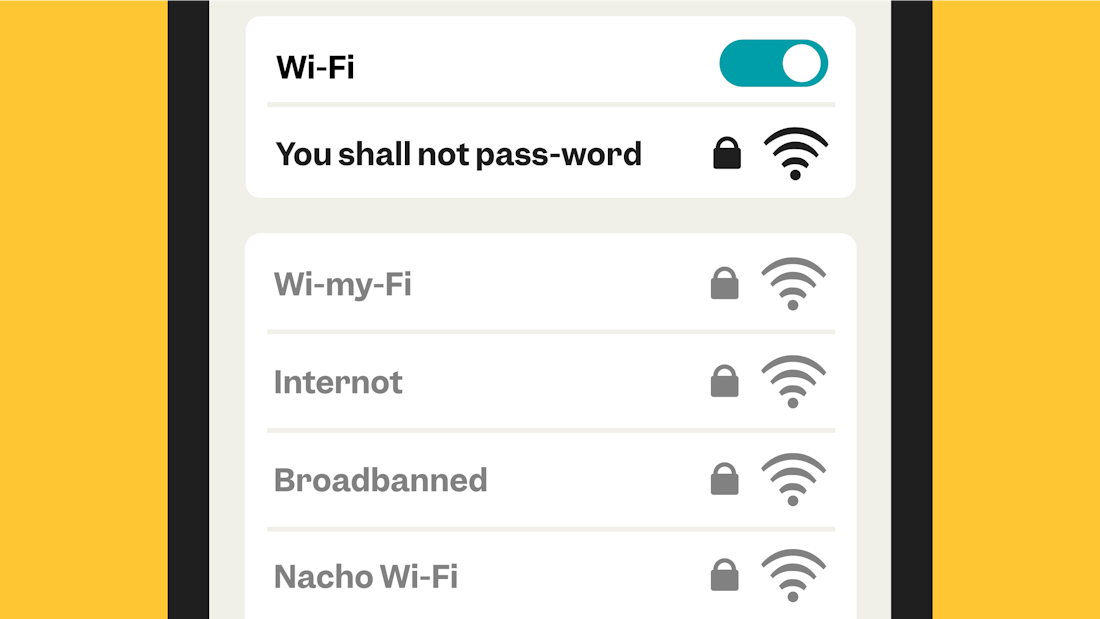
- ArticlesProductHow stuff works
How to protect your Wi-Fi from unwanted guests
Ever noticed that websites are loading more slowly? Or movies keep buffering? It could be that you have an unwanted ‘guest’ on your network.


John Vinton | Copywriter
WhatsApp is officially the biggest messenger app in the world. So guess how many messages are sent every single day? A billion? 10 billion? It’s actually a whopping 100 billion messages. No wonder some of them are not what they seem.
Free gifts, competition wins , fake family members, non-existent job offers, we’ve seen them all. But there’s no need to panic. You can protect yourself by keeping your eyes open for some of the most common scams.
You get a message from your brother but on a new number. He’s lost his phone, borrowed a friend’s and needs you to transfer some money urgently. Typical him . Or is it? Even if a message seems legitimate, don’t be too quick to respond. It could be a scam.
We always want to try and help but just be wary with unknown numbers. It was hard enough to spot fake messages when they were written by humans but at least the slightly odd language was sometimes a giveaway
Now they’re often created by AI copying the style from a person’s social media, which makes it even harder. So it’s always best to give the number a quick call to make sure it’s genuine.
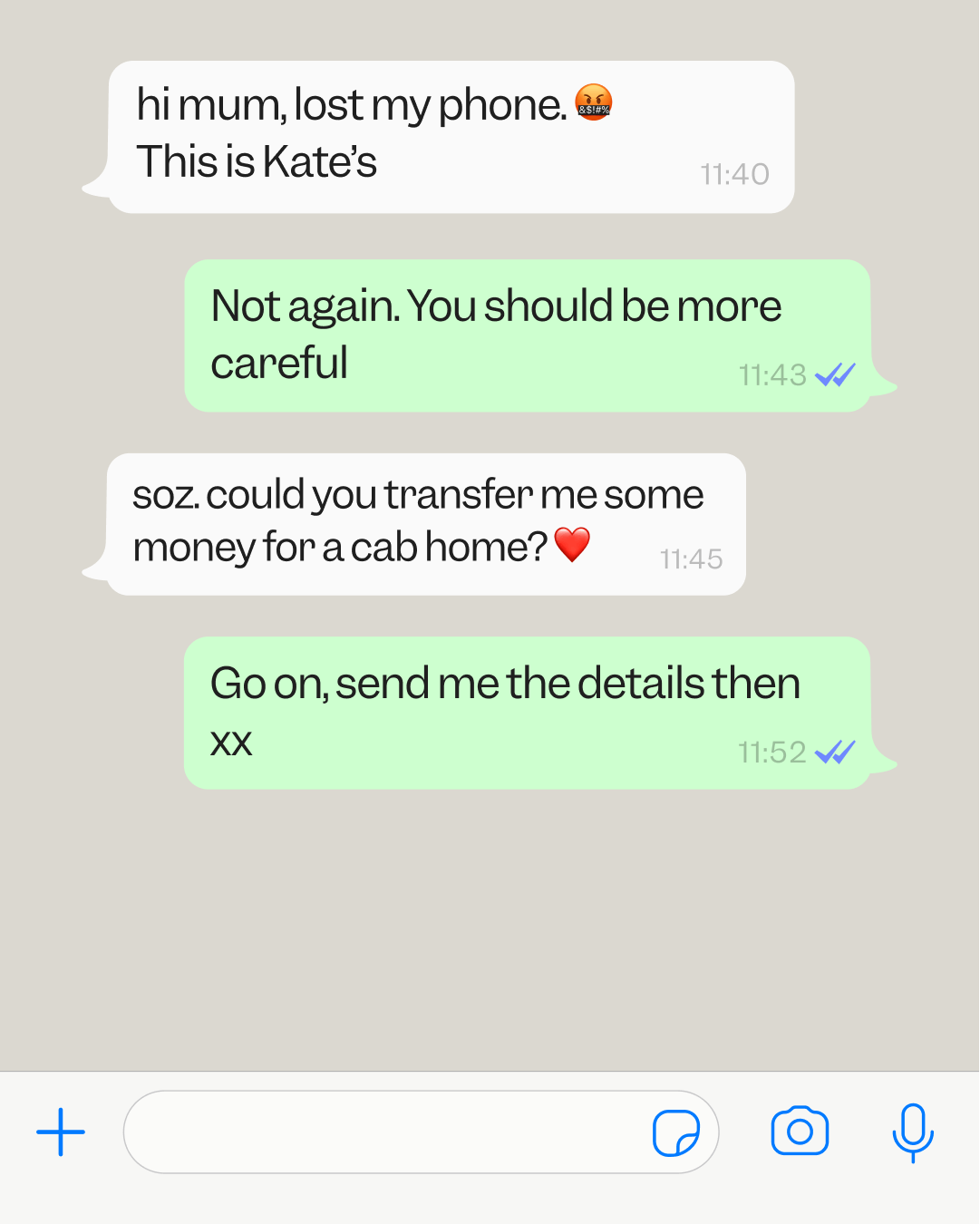
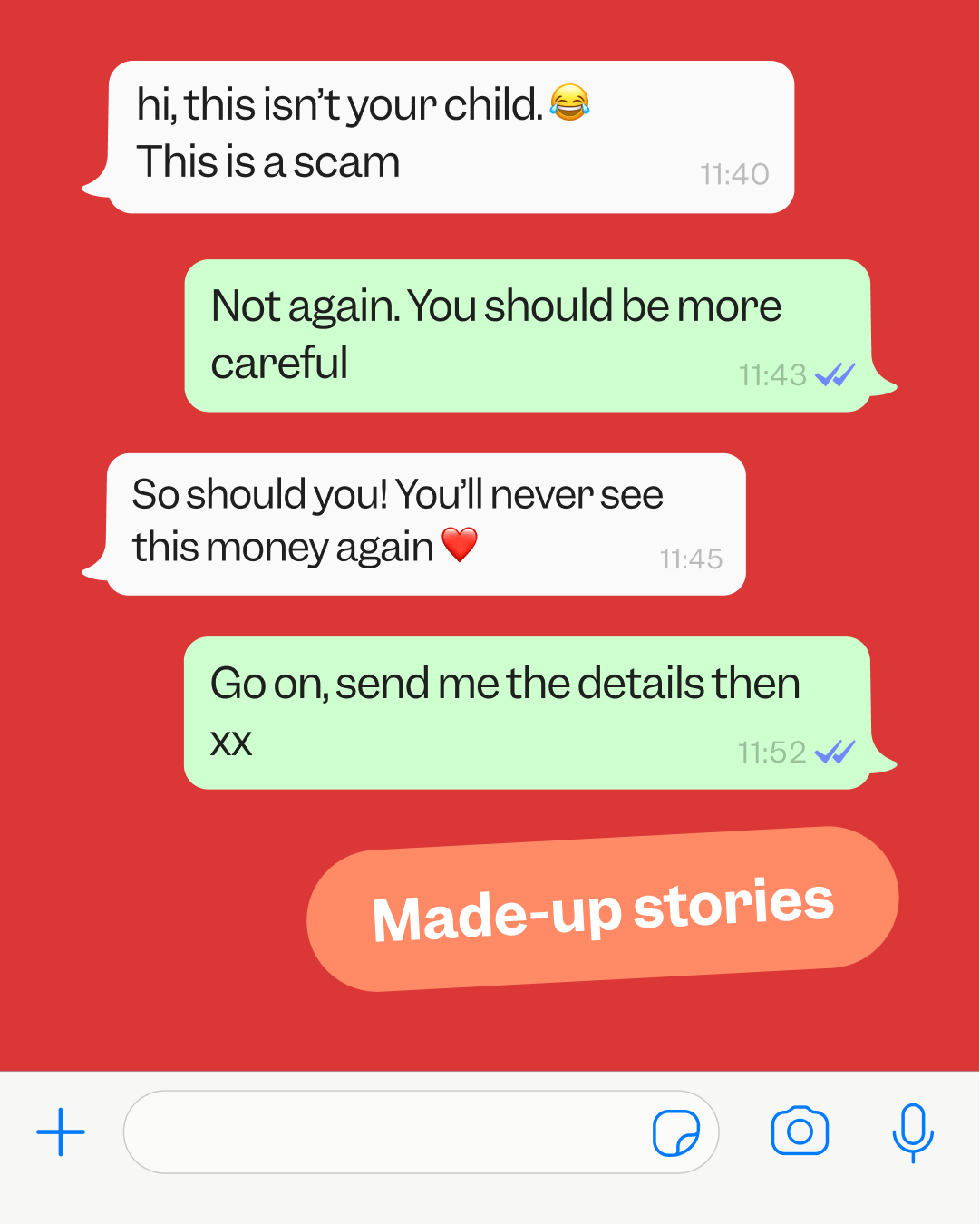
If you ever get a message from an unknown number saying you’ve won a competition, we've got bad news. You probably haven’t. And if it asks you to click a link to claim your prize or reply with personal information, then we’re sorry, but it ’s a scam
It’s very, very, very unlikely a company will choose you as the winner of a random contest and share the news via WhatsApp. The only ‘win’ here is to ignore these messages entirely


A great salary, flexible hours, no experience necessary… if an unsolicited job offer sounds too good to be true, it almost certainly is. WhatsApp’s popularity, plus the anonymity that comes with its encryption make it the perfect channel for employment fraud.
Scammers will send fake job offers asking for copies of ID documents to ‘run background checks on you’. In reality, they’re planning to steal your data. Warning signs include bad grammar, pressure to accept, vague details, lack of a proper interview and training fees demanded upfront.


Another scam as old as the hills is the promise of a reward just for filling in a quick survey by ‘clicking on the link’. The information you unknowingly provide can then be used to commit fraud.
A good rule of thumb is never to click the link in a message you’ve been sent from an unknown number. Remember, there’s no such thing as a free lunch. Or a free gift for completing a survey.
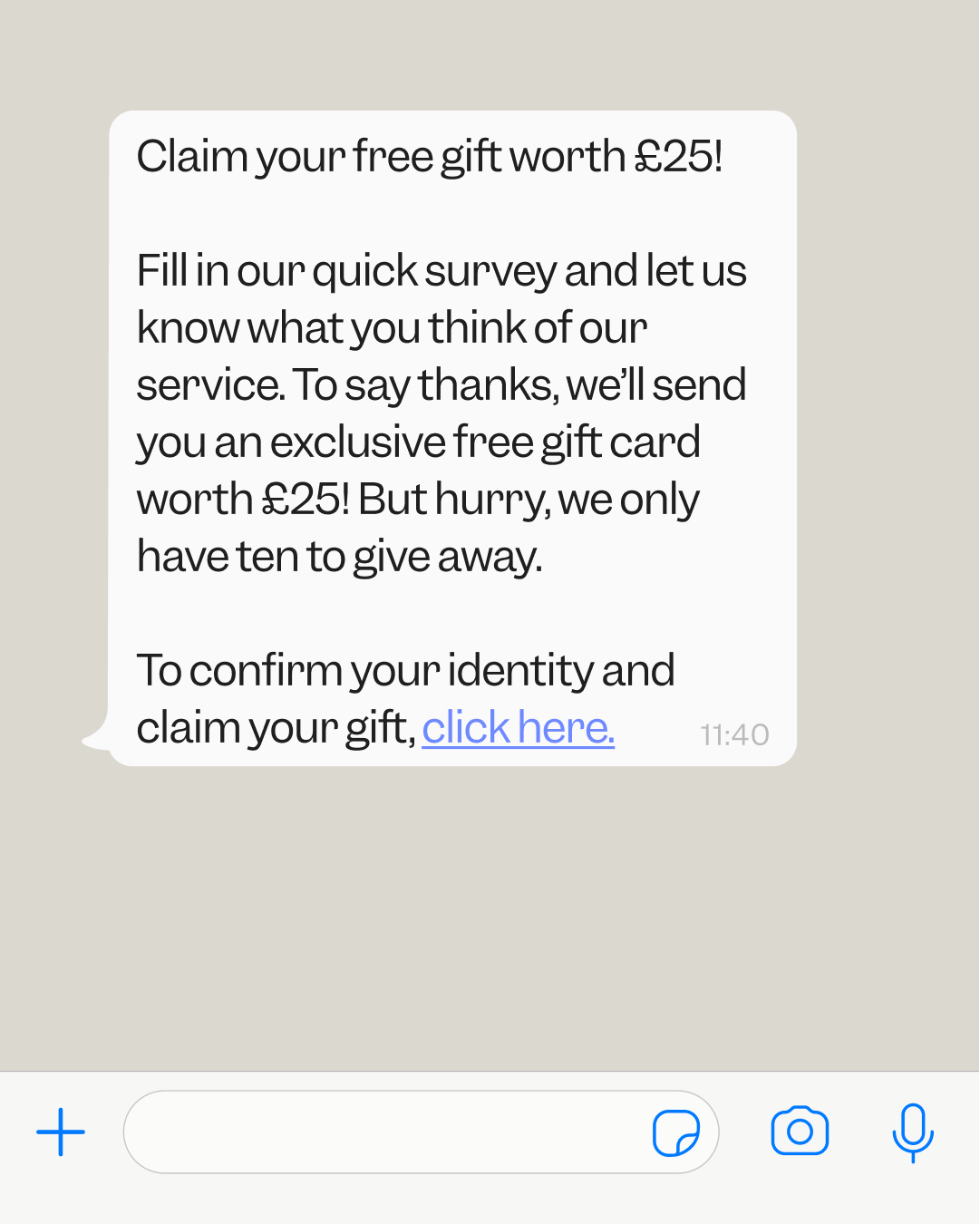

There’s been an earthquake on The Isle Of Wight. Bono is the jacket potato on The Masked Singer. Smart meters are listening to your conversations. All fake news, we’re afraid.
There are two types.
Misinformation - when people get things wrong by accident or when rumours get taken seriously.
Disinformation - when people deliberately spread lies or present their opinion as fact.
Remember, your social media feeds will most likely have fake news on them at some point. So before you’re tempted to pass it on, check other reputable sources of media for confirmation. Rather than your friend’s cousin’s boyfriend’s window cleaner.

Ever noticed that websites are loading more slowly? Or movies keep buffering? It could be that you have an unwanted ‘guest’ on your network.
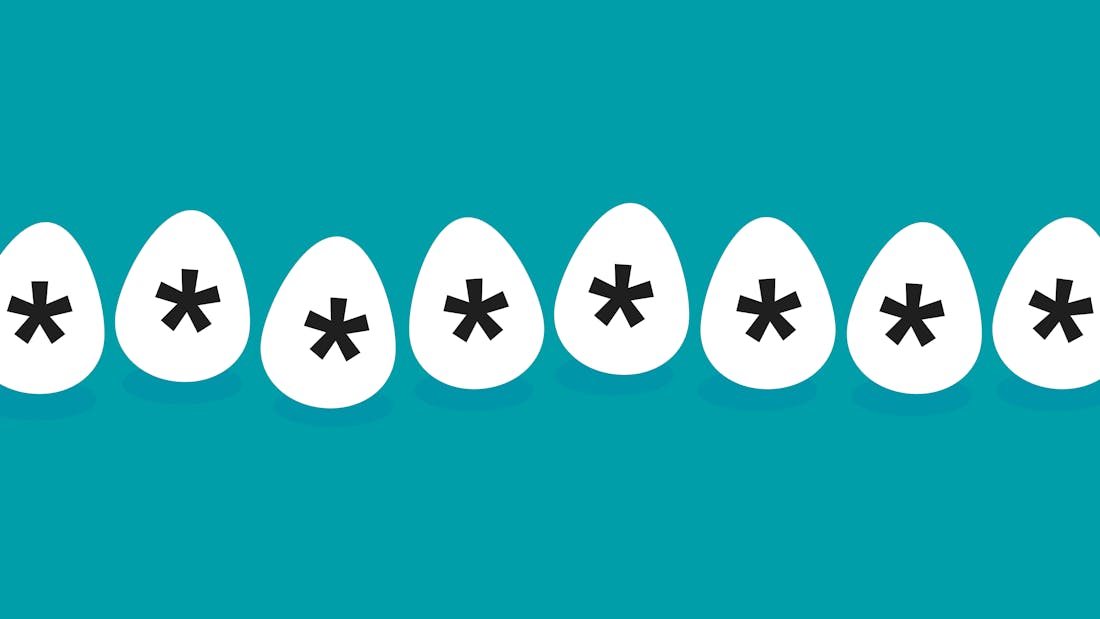
These days, it seems like you need a password for everything. Ordering food, paying bills, showing off your tan, you name it, you’ve got to enter the magical combination of letters, numbers and special characters.

It’s no secret that the internet is home to some shady characters, but staying safe online doesn’t mean that you have to turn your entire computer off. Instead, be mindful and take a look at these 8 top tips for staying safe online.